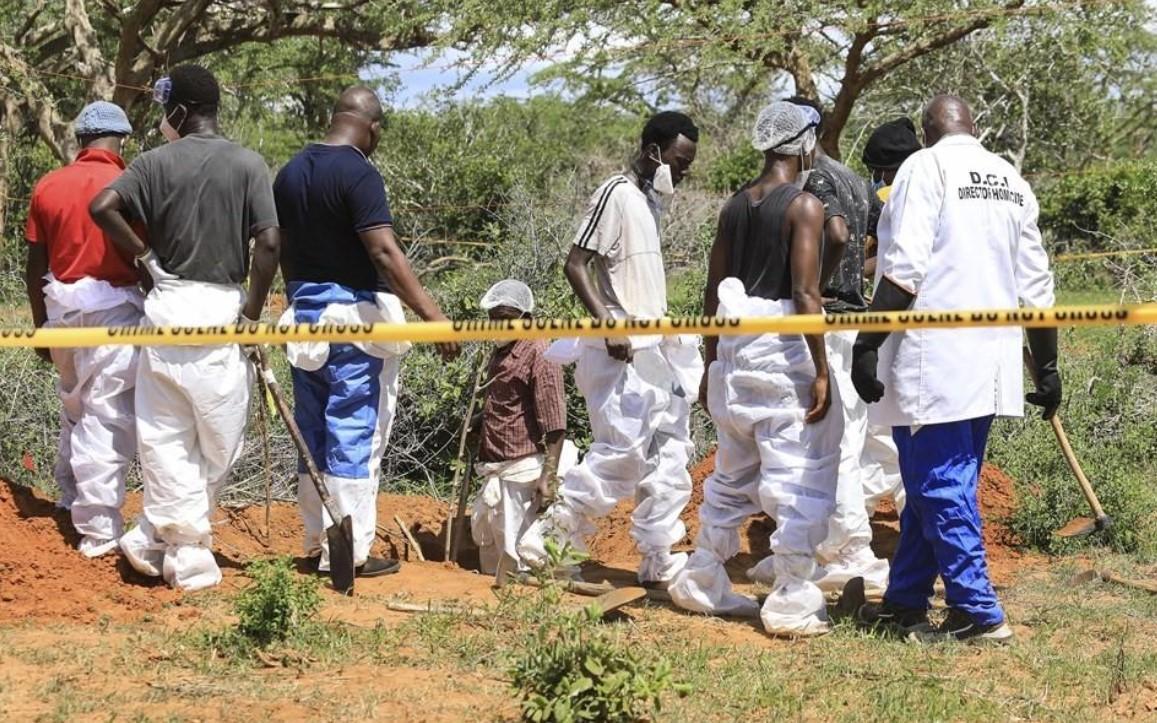
Kenyan President William Ruto on Monday vowed to crack down on "unacceptable" religious movements after police discovered the bodies of 51 people suspected of belonging to a Christian cult that practised starvation.
A major search is underway in a forest near the coastal town of Malindi where dozens of corpses were exhumed over the weekend, with authorities fearing more grisly discoveries could be made.
A full-scale investigation has been launched into the Good News International Church and its leader, named in court documents as Paul Mackenzie Nthenge, who preached that death by starvation delivered followers to God.
It is believed some of his devotees could still be hiding in the bush around Shakahola where the first bodies were discovered in shallow graves last week.
A 325-hectare (800-acre) area of woodland has been declared a crime scene as authorities seek to understand the true scale of what is being dubbed the "Shakahola Forest Massacre."
Ruto, speaking in speaking in Kiambu county neighbouring Nairobi, said there was "no difference" between rogue pastors like Nthenge -- who has been arrested and is awaiting trial -- and terrorists.
"Terrorists use religion to advance their heinous acts. People like Mr Mackenzie are using religion to do exactly the same thing."
"I have instructed the agencies responsible to take up the matter and to get to the root cause and to the bottom of the activities of... people who want to use religion to advance weird, unacceptable ideology."
Police chief Japhet Koome was expected on Monday to visit the site, where teams clad in overalls have been scouring for more burial pits and possible cult survivors.
There are fears some members could be hiding from authorities in the surrounding bushland and at risk of death if not quickly found.
A number of people have already been rescued and taken to hospital in Malindi, on Kenya's Indian Ocean coast.
Hussein Khalid, a member of the rights group Haki Africa that tipped off the police to the actions of the church, said one of those rescued had refused to eat despite being in clear physical distress.
"The moment she was brought here, she absolutely refused to be administered with first aid and she closed her mouth firmly, basically refusing to be assisted, wanting to continue with her fasting until she dies," he told AFP.
The Kenya Red Cross said 112 people had been reported missing to its support staff at Malindi.
Nthenge turned himself in to police and was charged last month, according to local media, after two children starved to death in the custody of their parents.
He has since been released on bail of 100,000 Kenyan shillings ($700). The case is due to be heard again on May 2.
The case has grabbed the national attention, prompting the government to flag the need for tighter control of fringe denominations in a country with a history of self-declared pastors and movements that become immersed in crime.
Interior Minister Kithure Kindiki, who has announced he would visit the site on Tuesday, described the case as "the clearest abuse of the constitutionally enshrined human right to freedom of worship."
But attempts to regulate religion in the majority-Christian country have been fiercely opposed in the past as attempts to undermine constitutional guarantees for a division between church and state.